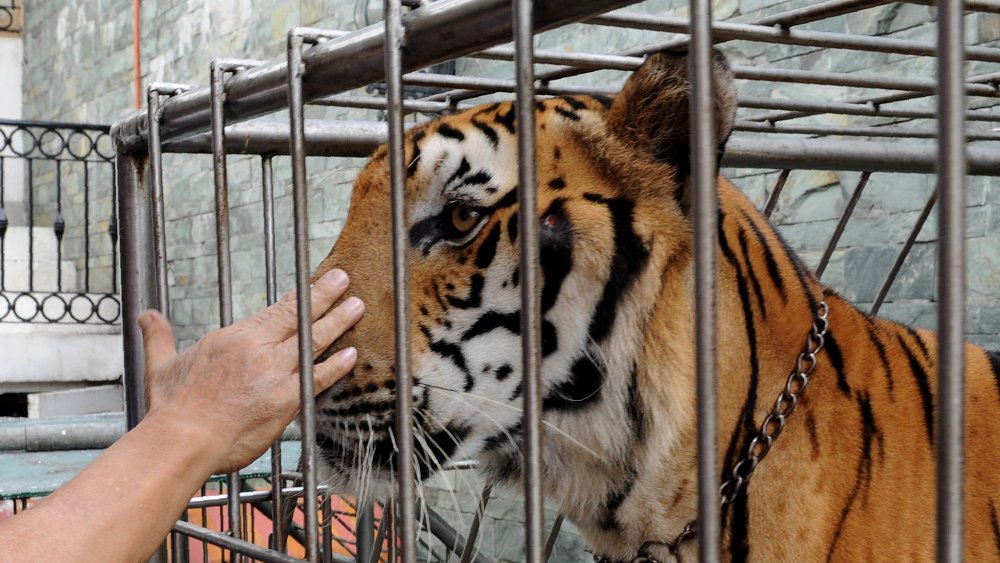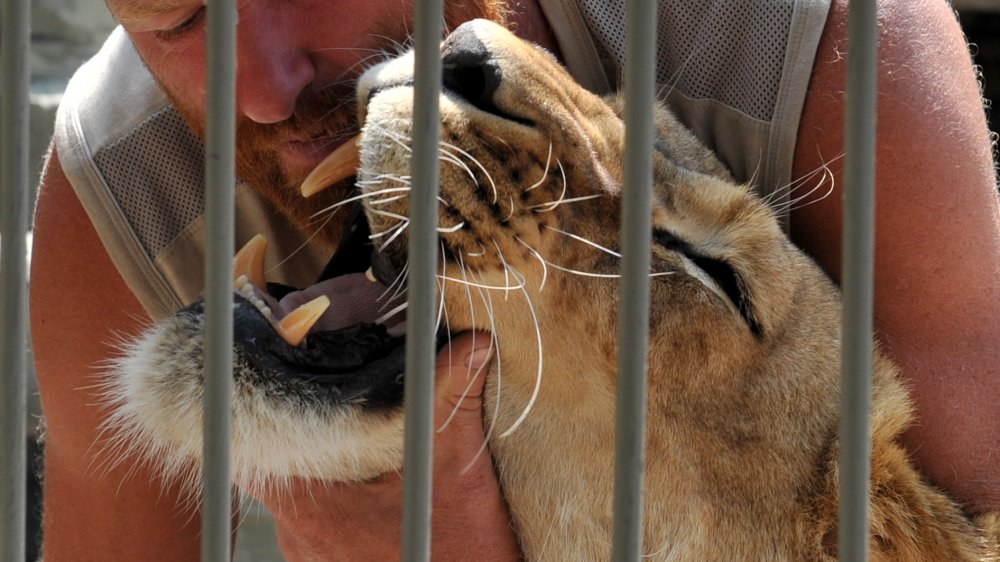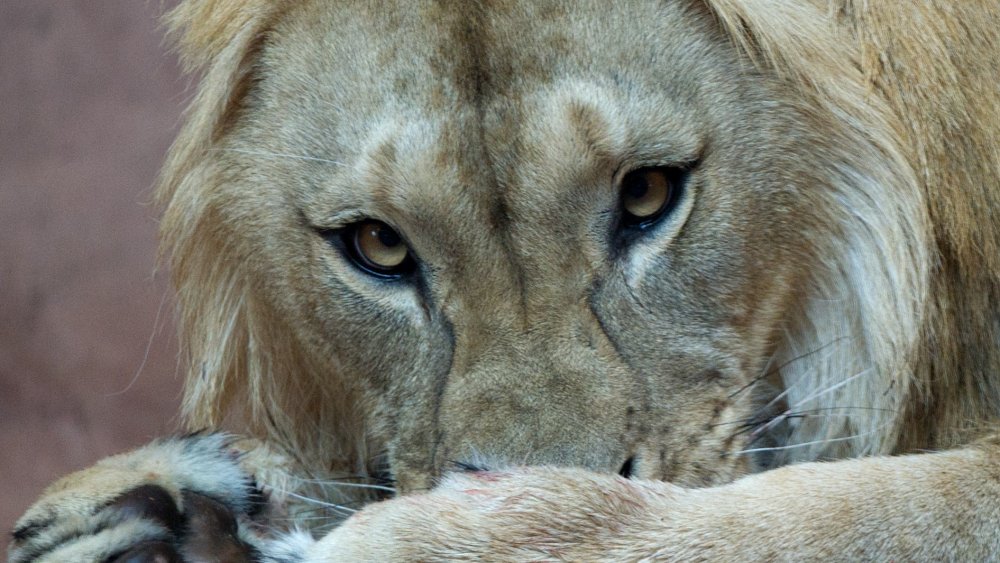This Is What It's Really Like To Have A Big Cat As A Pet
As the world inches ever closer to the inevitable day when it no longer cares about Tiger King, we must face some harsh realities. The consequences of this cultural stone, chucked haphazardly into the waters of Western culture, will ripple for decades. We will see its shadow in many forms: a Twitter post ironically opening with "Hey all you cool cats and kittens." A sexy off-brand women's Joe Exotic Halloween costume labeled "Polyamorous Big Cat Enthusiast."
And, for a small fraction of the population with both a devil-may-care attitude and $2000, there will be larger consequences, as some among us will inevitably watch the show and walk away thinking "man, owning a tiger looks nifty." What will that mean for these live-in-the-now individuals? Will adventures ensue? Can they, like Ronnie James Dio before them, ride the tiger? Specifically, can you ride it to Kroger? What is it really like to own a big cat?
Life experiences are subjective, so a lot of this is guess work, but from the information available, owning a big cat sounds terrifying to the point of unscheduled trouser irrigation.
Can you feel the love tonight?
Any pet owner knows, at least subconsciously, that their beloved animals are just one Joker-style bad day away from becoming uncontrolled balls of teeth and pain, and that situation doesn't improve when you add 550 pounds of muscles and claws to their bodies. Tigers tend to top out around 600 pounds, and lions hit around 500 at their peak. Crossbreeds get substantially larger, with the record holder, a liger named Hercules, reaching just shy of half a ton. Best case scenario, the side of your couch is toast if they ever get scratchy.
That sort of body weight means a whole lot of Fancy Feast. The Spruce Pets estimates that a tiger requires between 5000 and 6000 calories of food per day to survive, all in tender, juicy chunks of meat. Be ready to provide around 15 pounds of critter flesh per day, every day, for the entirety of their 20-plus year lifespan.
And that brings us, unavoidably, to another issue. Eating a lot of meat means dropping a lot of meaty deuces, and big cats instinctively use their leavings to mark their territory, making litter box training a non-starter. "Tiger feces are the size of large beetroot and have a characteristic pungent, musky odor," while their voluminous bladders let off "urine sprays that smell like well-cooked basmati rice." That's a direct quote from NBC News, and it reads a lot easier if you imagine Tom Brokaw saying it.
You look really delicious, by the way
All of this skirts the real issue, which is that owning a big cat is just remarkably ill advised, both for the owner and the animal. Stories about exotic animal attacks are a staple of local news broadcasts for good reason. There's no 100% safe method of housing a big cat. The Humane Society lists pages and pages of incidents which took place between 1990 and 2012 just in the United States, with pretty uniformly horrific results: children lose limbs, animal sanctuary volunteers are airlifted in pieces. Even accredited zoos, whose whole thing is keeping animals from attacking people, run into issues. If you're thinking about purchasing a big cat, be honest with yourself. You don't have the resources that a zoo has. You have, at best, two spools of chicken wire and a problem with impulse buying.
The takeaway here: if you really need a new pet in your life, maybe consider checking your local animal shelter and bringing home a nice dog. It won't turn as many heads around the trailer park, but you also won't wind up with a Netflix documentary about your myriad poor life choices if it bites a kid's face off.


